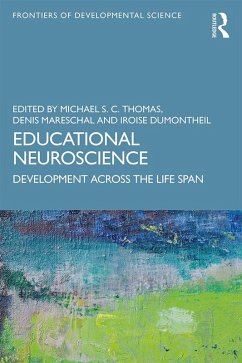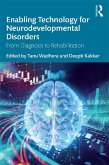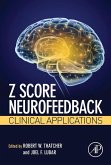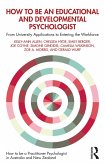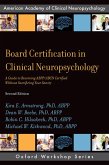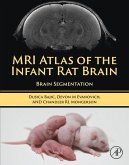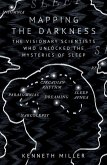Educational Neuroscience (eBook, ePUB)
Development Across the Life Span
Redaktion: Thomas, Michael S. C.; Dumontheil, Iroise; Mareschal, Denis
75,95 €
75,95 €
inkl. MwSt.
Sofort per Download lieferbar

38 °P sammeln
75,95 €
Als Download kaufen

75,95 €
inkl. MwSt.
Sofort per Download lieferbar

38 °P sammeln
Jetzt verschenken
Alle Infos zum eBook verschenken
75,95 €
inkl. MwSt.
Sofort per Download lieferbar
Alle Infos zum eBook verschenken

38 °P sammeln
Educational Neuroscience (eBook, ePUB)
Development Across the Life Span
Redaktion: Thomas, Michael S. C.; Dumontheil, Iroise; Mareschal, Denis
- Format: ePub
- Merkliste
- Auf die Merkliste
- Bewerten Bewerten
- Teilen
- Produkt teilen
- Produkterinnerung
- Produkterinnerung

Bitte loggen Sie sich zunächst in Ihr Kundenkonto ein oder registrieren Sie sich bei
bücher.de, um das eBook-Abo tolino select nutzen zu können.
Hier können Sie sich einloggen
Hier können Sie sich einloggen
Sie sind bereits eingeloggt. Klicken Sie auf 2. tolino select Abo, um fortzufahren.

Bitte loggen Sie sich zunächst in Ihr Kundenkonto ein oder registrieren Sie sich bei bücher.de, um das eBook-Abo tolino select nutzen zu können.
Thomas, Mareschal, Dumontheil and the team of expert international contributors explore four main themes throughout the book. Specific topics explored include neuropsychological perspectives on socioeconomic disparities in educational achievement, reading difficulties, phonological skills, executive function and emotional development.
- Geräte: eReader
- mit Kopierschutz
- eBook Hilfe
Andere Kunden interessierten sich auch für
![Enabling Technology for Neurodevelopmental Disorders (eBook, ePUB) Enabling Technology for Neurodevelopmental Disorders (eBook, ePUB)]() Enabling Technology for Neurodevelopmental Disorders (eBook, ePUB)40,95 €
Enabling Technology for Neurodevelopmental Disorders (eBook, ePUB)40,95 €![Z Score Neurofeedback (eBook, ePUB) Z Score Neurofeedback (eBook, ePUB)]() Z Score Neurofeedback (eBook, ePUB)56,95 €
Z Score Neurofeedback (eBook, ePUB)56,95 €![The Development of Autobiographical Memory (eBook, ePUB) The Development of Autobiographical Memory (eBook, ePUB)]() Hans J. MarkowitschThe Development of Autobiographical Memory (eBook, ePUB)34,95 €
Hans J. MarkowitschThe Development of Autobiographical Memory (eBook, ePUB)34,95 €![How to be an Educational and Developmental Psychologist (eBook, ePUB) How to be an Educational and Developmental Psychologist (eBook, ePUB)]() Kelly-Ann AllenHow to be an Educational and Developmental Psychologist (eBook, ePUB)23,95 €
Kelly-Ann AllenHow to be an Educational and Developmental Psychologist (eBook, ePUB)23,95 €![Board Certification in Clinical Neuropsychology (eBook, ePUB) Board Certification in Clinical Neuropsychology (eBook, ePUB)]() ArmstrongBoard Certification in Clinical Neuropsychology (eBook, ePUB)27,95 €
ArmstrongBoard Certification in Clinical Neuropsychology (eBook, ePUB)27,95 €![MRI Atlas of the Infant Rat Brain (eBook, ePUB) MRI Atlas of the Infant Rat Brain (eBook, ePUB)]() Dusica BajicMRI Atlas of the Infant Rat Brain (eBook, ePUB)128,95 €
Dusica BajicMRI Atlas of the Infant Rat Brain (eBook, ePUB)128,95 €![Mapping the Darkness (eBook, ePUB) Mapping the Darkness (eBook, ePUB)]() Kenneth MillerMapping the Darkness (eBook, ePUB)10,87 €
Kenneth MillerMapping the Darkness (eBook, ePUB)10,87 €-
-
-
Thomas, Mareschal, Dumontheil and the team of expert international contributors explore four main themes throughout the book. Specific topics explored include neuropsychological perspectives on socioeconomic disparities in educational achievement, reading difficulties, phonological skills, executive function and emotional development.
Dieser Download kann aus rechtlichen Gründen nur mit Rechnungsadresse in A, B, BG, CY, CZ, D, DK, EW, E, FIN, F, GR, HR, H, IRL, I, LT, L, LR, M, NL, PL, P, R, S, SLO, SK ausgeliefert werden.
Produktdetails
- Produktdetails
- Verlag: Taylor & Francis eBooks
- Seitenzahl: 570
- Erscheinungstermin: 31. März 2020
- Englisch
- ISBN-13: 9781000040791
- Artikelnr.: 58987855
- Verlag: Taylor & Francis eBooks
- Seitenzahl: 570
- Erscheinungstermin: 31. März 2020
- Englisch
- ISBN-13: 9781000040791
- Artikelnr.: 58987855
- Herstellerkennzeichnung Die Herstellerinformationen sind derzeit nicht verfügbar.
Michael S. C. Thomas obtained his PhD from the University of Oxford and completed a postdoctoral fellowship at the UCL Institute of Child Health. His research in developmental cognitive neuroscience focuses on the origins of cognitive variability, including developmental disorders. He is Director of the University of London Centre for Educational Neuroscience, UK. Denis Mareschal is Director of the Centre for Brain and Cognitive Development, University of London, UK. He has published extensively on all aspects of learning and development across infancy and childhood and is a recipient of the Marr Prize (Cognitive Science Society, USA), the Young Researcher Award (International Society on Infant Studies, USA), and the Margaret Donaldson Prize (British Psychological Society, UK). Iroise Dumontheil obtained a PhD from the University of Paris VI and then was a postdoctoral fellow in labs in London, Cambridge and Stockholm. She is a recipient of the Spearman Medal (British Psychological Society) and the Elizabeth Warrington Prize (British Neuropsychological Society). Her research focuses on the typical development of the brain, cognition and behaviour during adolescence, and on the implication of these findings for education.
Introduction
1. Why is neuroscience relevant to education?
2. An introduction to brain and cognitive development - the key concepts
you need to know
Development and variation: Nature vs. Nature
3. What has behavioral genetic research told us about the origins of
individual differences in educational abilities and achievements?
4. Socioeconomic disparities in achievement: Insights on neurocognitive
development and educational interventions
Discipline-specific abilities: literacy, numeracy, and science
5. Neuroscience in reading and reading difficulties
6. Reading acquisition and developmental dyslexia: Educational
neuroscience and phonological skills
7. Sources of variability in mathematical development
8. Lifespan conceptual development in science: brain and behaviour
Discipline-general abilities: executive functions, social and
affective development
9. The development of executive functions in childhood and adolescence
and their relation to school performance
10. Understanding emotional thought can transform educators'
understanding of how students learn
Leading methods for cognitive enhancement
11. Action video games: from effects on cognition and the brain to
potential educational applications
12. Mindfulness and executive function: Implications for learning and
early childhood education
13. The neuroscience of sleep and its relation to educational outcomes
14. The effectiveness of aerobic exercise for improving educational
outcomes
15. The cognitive benefits and disadvantages of bilingualism across the
lifespan and implications for education
16. Music training, individual differences, and plasticity
Into the classroom
17. Towards a science of teaching and learning for teacher education
18. Educational neuroscience: ethical perspectives
19. Educational neuroscience: so what does it mean in the classroom?
Conclusion
20. Key challenges in advancing educational neuroscience
1. Why is neuroscience relevant to education?
2. An introduction to brain and cognitive development - the key concepts
you need to know
Development and variation: Nature vs. Nature
3. What has behavioral genetic research told us about the origins of
individual differences in educational abilities and achievements?
4. Socioeconomic disparities in achievement: Insights on neurocognitive
development and educational interventions
Discipline-specific abilities: literacy, numeracy, and science
5. Neuroscience in reading and reading difficulties
6. Reading acquisition and developmental dyslexia: Educational
neuroscience and phonological skills
7. Sources of variability in mathematical development
8. Lifespan conceptual development in science: brain and behaviour
Discipline-general abilities: executive functions, social and
affective development
9. The development of executive functions in childhood and adolescence
and their relation to school performance
10. Understanding emotional thought can transform educators'
understanding of how students learn
Leading methods for cognitive enhancement
11. Action video games: from effects on cognition and the brain to
potential educational applications
12. Mindfulness and executive function: Implications for learning and
early childhood education
13. The neuroscience of sleep and its relation to educational outcomes
14. The effectiveness of aerobic exercise for improving educational
outcomes
15. The cognitive benefits and disadvantages of bilingualism across the
lifespan and implications for education
16. Music training, individual differences, and plasticity
Into the classroom
17. Towards a science of teaching and learning for teacher education
18. Educational neuroscience: ethical perspectives
19. Educational neuroscience: so what does it mean in the classroom?
Conclusion
20. Key challenges in advancing educational neuroscience
Introduction
1. Why is neuroscience relevant to education?
2. An introduction to brain and cognitive development - the key concepts
you need to know
Development and variation: Nature vs. Nature
3. What has behavioral genetic research told us about the origins of
individual differences in educational abilities and achievements?
4. Socioeconomic disparities in achievement: Insights on neurocognitive
development and educational interventions
Discipline-specific abilities: literacy, numeracy, and science
5. Neuroscience in reading and reading difficulties
6. Reading acquisition and developmental dyslexia: Educational
neuroscience and phonological skills
7. Sources of variability in mathematical development
8. Lifespan conceptual development in science: brain and behaviour
Discipline-general abilities: executive functions, social and
affective development
9. The development of executive functions in childhood and adolescence
and their relation to school performance
10. Understanding emotional thought can transform educators'
understanding of how students learn
Leading methods for cognitive enhancement
11. Action video games: from effects on cognition and the brain to
potential educational applications
12. Mindfulness and executive function: Implications for learning and
early childhood education
13. The neuroscience of sleep and its relation to educational outcomes
14. The effectiveness of aerobic exercise for improving educational
outcomes
15. The cognitive benefits and disadvantages of bilingualism across the
lifespan and implications for education
16. Music training, individual differences, and plasticity
Into the classroom
17. Towards a science of teaching and learning for teacher education
18. Educational neuroscience: ethical perspectives
19. Educational neuroscience: so what does it mean in the classroom?
Conclusion
20. Key challenges in advancing educational neuroscience
1. Why is neuroscience relevant to education?
2. An introduction to brain and cognitive development - the key concepts
you need to know
Development and variation: Nature vs. Nature
3. What has behavioral genetic research told us about the origins of
individual differences in educational abilities and achievements?
4. Socioeconomic disparities in achievement: Insights on neurocognitive
development and educational interventions
Discipline-specific abilities: literacy, numeracy, and science
5. Neuroscience in reading and reading difficulties
6. Reading acquisition and developmental dyslexia: Educational
neuroscience and phonological skills
7. Sources of variability in mathematical development
8. Lifespan conceptual development in science: brain and behaviour
Discipline-general abilities: executive functions, social and
affective development
9. The development of executive functions in childhood and adolescence
and their relation to school performance
10. Understanding emotional thought can transform educators'
understanding of how students learn
Leading methods for cognitive enhancement
11. Action video games: from effects on cognition and the brain to
potential educational applications
12. Mindfulness and executive function: Implications for learning and
early childhood education
13. The neuroscience of sleep and its relation to educational outcomes
14. The effectiveness of aerobic exercise for improving educational
outcomes
15. The cognitive benefits and disadvantages of bilingualism across the
lifespan and implications for education
16. Music training, individual differences, and plasticity
Into the classroom
17. Towards a science of teaching and learning for teacher education
18. Educational neuroscience: ethical perspectives
19. Educational neuroscience: so what does it mean in the classroom?
Conclusion
20. Key challenges in advancing educational neuroscience
